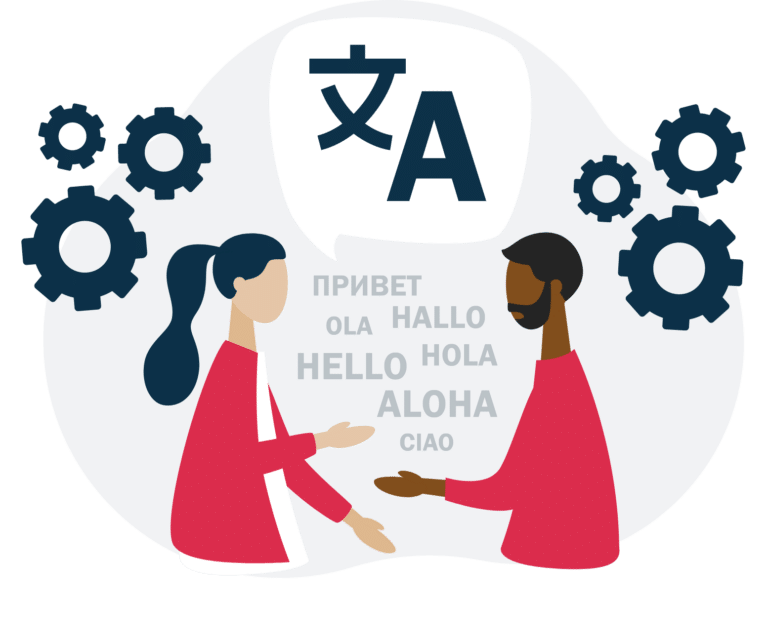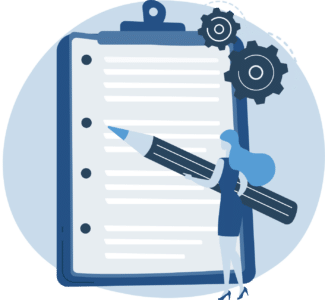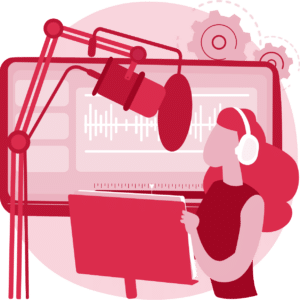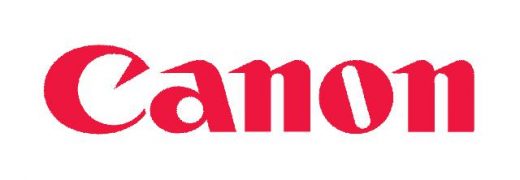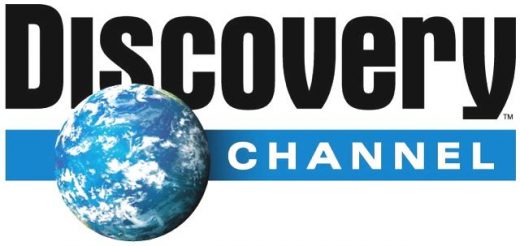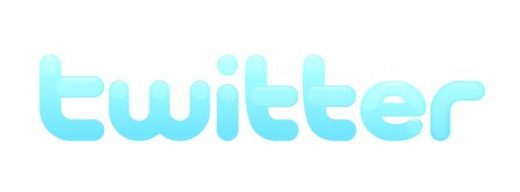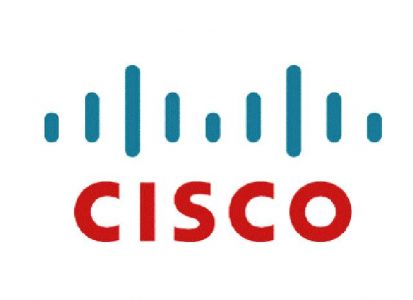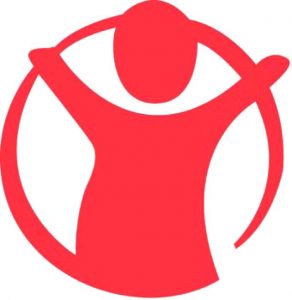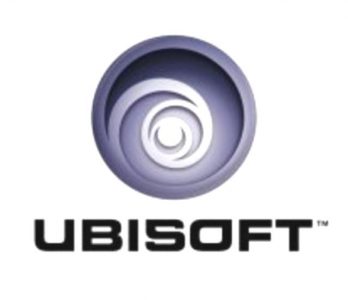Munhwao Language Services
Order High-Quality Munhwao Translation Services
- Translation, Transcriptions, Voiceover, Subtitling and more
- Quick Turnaround
- Native Language Experts
GoLocalise takes your Munhwao content to new places
GoLocalise specialises in professional English to Munhwao and Munhwao to English translation. We can also translate Munhwao to and from over 600 different languages.
GoLocalise is the only translation agency offering translations from Munhwao to any language in the world.
Munhwao services you can trust Quality Assured Munhwao Translations
The most important consideration when selecting a translation agency to handle your Munhwao translation is trust. Only professional translators whose native language is Munhwao carry out our English to Munhwao translations. Here’s why you should choose us:
- Strict Quality Control Process to Ensure Accuracy at Each Stage
- Quick Turnaround Time
- Munhwao Translation Services in Over 600 Languages
- Value-Based Pricing
- Human Language Experts
Offering High-Quality English to Munhwao Translation Services
GoLocalise is proud to provide a comprehensive Munhwao translation service, specialising in audio and video content and tailored to our clients’ needs
Munhwao to English Translation Services? Yes, We Offer This Too!
We also offer high-quality translation from Munhwao to English with a quick turnaround. We make sure that all information and nuances are properly communicated.
Thanks to our native English translators who are not only linguists and language enthusiasts, but also carry expertise in specialist subjects such as law, marketing, business, economics, physics, medicine, IT and more.
Comprehensive Audio and Video Munhwao Translation Services to Overcome Localisation Challenges!
With our expertise in re-versioning audio and video content, we can help you access new markets and promote your content. You will receive a comprehensive, cost-effective, and trouble-free video translation service. We can do everything from transcribing, translating, and voicing a video, to creating Munhwao subtitles and artistically modifying captions or on-screen text for a foreign language version of your film.
Send Your Project Viral with the Help of the UK’s Leading Munhwao Subtitling Company.
Subtitles occur on the screen as text in reaction to the characters’ speech or dialogue. They are typically used to transform media into a language that the audience can comprehend. If subtitles are not accurate to the spoken word on screen, the viewers’ understanding of the content can be negatively impacted. Precisely created subtitles, on the other hand, enhance the value of your video content.
That’s why we have professional linguists in place to create subtitles for your film or other video content. Our team consists of both local and foreign resources to ensure that every uttered word in another language is correctly translated.
Get High-Quality Munhwao Transcription Services for Your Audio and Video Content!
We provide Munhwao transcription services for your audio and video files. If required, we can also arrange for that French transcription to be translated into over 600 different languages. You can rest assured that your Munhwao transcriptions are returned on time and with our guarantee of quality.
Offering Munhwao Voice Over Services Delivered by Professional and Native Voice Artists!
Whether you are looking for a Munhwao voice over artist for your TV commercial, in-store announcement, animation, or any other form of content, look no further than our native Munhwao voice over services. We are a reliable voice over agency with professional voice over talents who can perform in a variety of languages and dialects for a range of purposes. No matter how complicated your voice over requirements are, we guarantee you the quickest possible turnaround with top quality. Here are some convincing reasons to choose our Munhwao voice over services:
- State-of-the-art sound recording studios in London
- Specialising in Munhwao script translations for TV, mobile, advertising, video games, and more
- Munhwao voice over artists (actors, radio broadcasters and TV presenters) record in Munhwao or even English with a Munhwao accent
We provide Munhwao audio recording services for the following projects:
- E-learning materials
- Online courses
- Training and educational recordings
- TV/radio commercials and spots
- Podcasts
- Audiobooks
- Narration for films & documentaries narration
- Corporate videos
- Corporate business presentations
- PowerPoint presentations
- Sales videos
- Sports broadcasts
- Telephony (IVR voice prompts/on-hold messages)
- Location sound
- Voice over internet protocol (VoIP) systems
- Airlines, trains, elevators/lifts, ATMs,
- In-store announcements
- Conferences/shows
- Voices for video games
- Characters and cartoons
- Lip-synching and dubbing for films & animation.
Create high impact, first time with GoLocalise as your audio and video translation service provider
- WOW your clients with first-class translations carried out by translation experts in that particular industry sector.
- Stringent quality control processes - subtitling (English) templates created and checked in-house, and timed to professional standards.
- Industry leading subtitling software to create subtitles that are perfectly timed to the exact frame and aesthetically positioned around shot changes.
- Your message faithfully and accurately delivered by experienced native subtitlers only.
- All translations are thoroughly quality checked by our experienced project managers before final delivery.
- You will receive ready-to-use videos with translated burnt-in subtitles - open captions - that are ready to be uploaded to your website. You can customise the style and look of the subtitles (font, size, colour, positioning, etc.).
- If you prefer to give your clients or viewers flexibility, why not go for subtitles that can be switched on and off in multiple languages? You can receive closed captions in the format of your choice – ready to be uploaded to YouTube or Vimeo channels, DVD or Blu-Ray.
- Go the extra mile by localising all your content. On-screen text and captions in your video can be translated and graphically edited, so that you receive a flawless foreign language version.

You deserve the best!
Leave your project to the experts at GoLocalise so that you can relax and be assured of getting top-notch results
Every single detail will be analysed, studied and looked
after so that you do not need to worry. Some would say it’s not too classy to blow our own trumpet… but we just like to point out two very important details. We have achieved ISO 9001 Quality Management certification in recognition of our consistent performance and high standards, and ISO 14001 Environmental Management because we care about our planet! And if you are still curious and want to know more about us, why not have a look at our studio page.
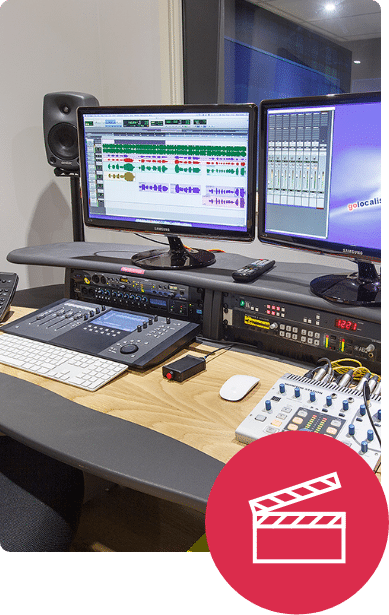
Working alongside translation & production companies
Having a strong audiovisual department on your side makes all the difference!
With GoLocalise you get an experienced and motivated team of professionals that work regularly alongside translation and production companies. We understand the technical requirements necessary to produce perfect foreign language and English voice overs. Our project managers will assist you along the way and we’ll break down the process and present it to you without the big words or technical industry jargon, so you don’t need to worry about the technical aspects and can simply concentrate on growing your business. By working with GoLocalise you’ll be able to offer additional services, i.e., voice over, subtitling and translation to your clients, with a partner who will deliver and on whom you can truly rely.
When working with translation companies we provide easy-to-follow guidelines so that you can provide your own translations for us to “convert” into subtitles, or voice over your translated scripts. Or if you prefer, we can take the entire project off your hands and keep things simple for you – it’ your call! We’re equally used to working with production companies, so we can deliver your translations or subtitles in any language and format of your choice – either burning-in the subtitles onto the video for you, or supplying you with XML or PNG files for you to do yourself – Adobe After Effects and Final Cut Pro ready files.
Reach your target market
Don’t leave your important communication to chance. Make sure your message is clearly understood by your audience and choose GoLocalise for your next voice over project.
We have thousands of passionate and professional voice over artists ready to work with you. No matter the type of voice you are looking for, we’ll either have it in our books or find it and source it for you. We’ll organise a casting and ensure you get the perfect voice to suit your needs.
You will also benefit from having your own dedicated project manager – a single point of contact – to guide you through your project, answer any questions you may have and make things a whole lot easier.
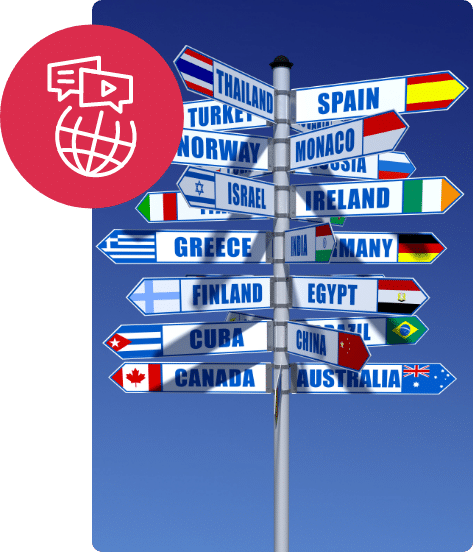
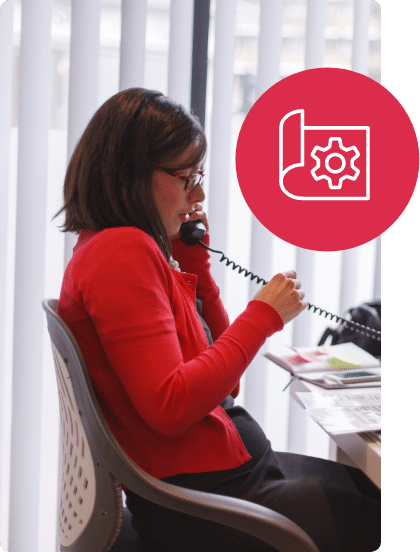
Meet your dedicated project manager
Your project will be in the safe hands of one of our multilingual project managers.
They will guide you through every step and ensure you understand the process. Our industry has a tendency to use lots of technical jargon but your dedicated project manager will be on-hand to untangle the mess and explain all you need to know to ensure you only pay for what you need.
If you need help in choosing the right voice over talent to deliver your message then just ask your project manager. From booking our voice over recording studios to ensuring you project is delivered on time in your chosen media, relax and let your experienced project manager take care of everything. You will receive unparalleled attention to detail and customer focus at competitive prices. You’ll wish everything was as easy as a GoLocalise voice over!
Perfect voice over recording studios
Your recordings will sound beautiful and crystal clear thanks to our high-end studio soundproofing and audio equipment, i.e. ProTools HD and Neumann microphones.
Maximise your budget by reducing the need for retakes with the help of our experienced in-house sound engineers who will professionally capture and edit your audio. And for those recordings in languages which neither you nor your client speak, we’ll bring a qualified pro to your session to add that essential ingredient. To make you feel right at home, we provide high-speed Wi-Fi Internet and air-con is available. And last but not least, we have the biggest cookie jar you’ve ever seen, that’ll make your custom brew taste even sweeter!
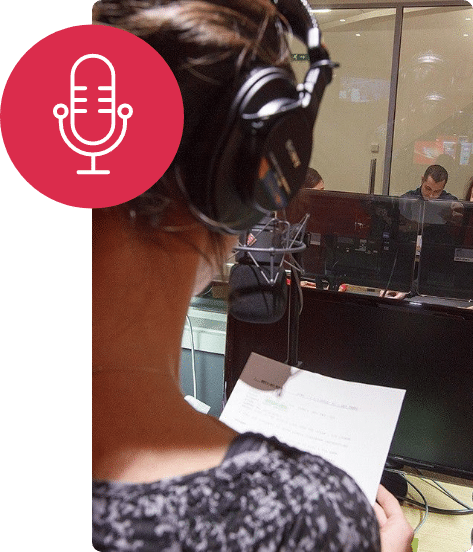
Munhwao Language Facts
North Korean standard language or Munhwaŏ is the North Korean standard version of the Korean language. Munhwaŏ was adopted as the standard in 1966. The adopting proclamation stated that the Pyongan dialect spoken in the North Korean capital Pyongyang and its surroundings should be the basis for Munhwaŏ; however, in practice, Iksop Lee and S. Robert Ramsey report that Munhwaŏ remains “firmly rooted” in the Seoul dialect, which had been the national standard for centuries. Most differences between the North and South Korean standards are thus attributable to replacement of Sino-Korean vocabulary and other loanwords with pure Korean words, or the Northern ideological preference for “the speech of the working class” which includes some words considered non-standard in the South.
Following the liberation of Korea in 1945, The Democratic People’s Republic of Korea continued to follow the Korean language guidelines as defined by the Korean Language Society in 1933 with the “Proposal for Unified Korean Orthography” (한글 맞춤법 통일안) and in 1936 with the “Collection of Assessed Standard Korean Words” (사정한 조선어 표준말 모음). In 1954, the 1933 proposal was replaced by a new system (조선어 철자법) by the North Korean government in which thirteen words were slightly modified. Although the reformation created little difference, from this point the languages spoken by people on both sides on the Korean peninsula only grew in difference.
During the emergence of the Juche idea in the 1960s, Kim Il-sung coordinated an effort to purify the Korean language from English, Japanese, and Russian loanwords as well as words with less common Hancha characters, replacing them with new words derived from native Korean words. In a lecture by Kim Il-sung on 3 January 1964, titled “Some problems to develop the Korean language” (조선어를 발전시키 위한 몇가지 문제), he emphasized the significance of the usage of language as a weapon in the socialist construction of all areas of development, and tried to align with the global trend of change as well as preserving ethnic uniqueness.
Thus, North Korea began to refer to its own dialect as “cultural language” (문화어) as a reference to its return to words of Korean cultural origin, in juxtaposition to South Korea’s reference to its own dialect as “standard language” (표준어).
Watch this video to find out more
Frequently Asked Questions
What our happy customers say
Kerry Gillies
Director at Synergy Language Services

Patricia Leon-Fedorko
Account Specialist at Advanced Language
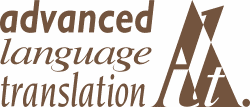
Stefanie Smith
Producer at Education First
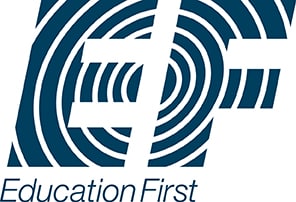
Lucas Cole
Sales and Marketing Director at Epipheo
Thomas Kennedy
Designer at Atlas Knowledge
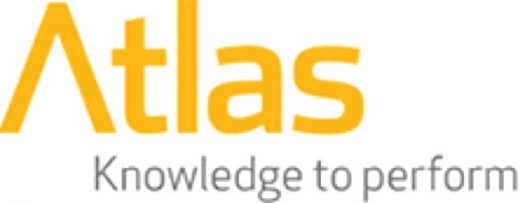
Jonathan Lapps
Account Manager at Epipheo
The Complete Solution To Adapt Your Content
Looking to get your entire project under one roof? Look no further, we can help you make life easier for you!

- Neumann Microphones
- On-hand Sound Engineers
- Talented Voice Over Actors
- State-of-the-art Recording Studios
- Tailored to Your Business
- Stringent Quality Control Process
- Laser-Focused Project Managers
- Global Network of 600+ Languages

- Professional Subtitlers
- Open/Closed Captions & Web
- Industry-Standard Software
- Subtitle Burn-in & Graphic Editing

- Improve accessibility
- Reach a wider audience
- Increased SEO and video views
- Maximise your video's engagement
